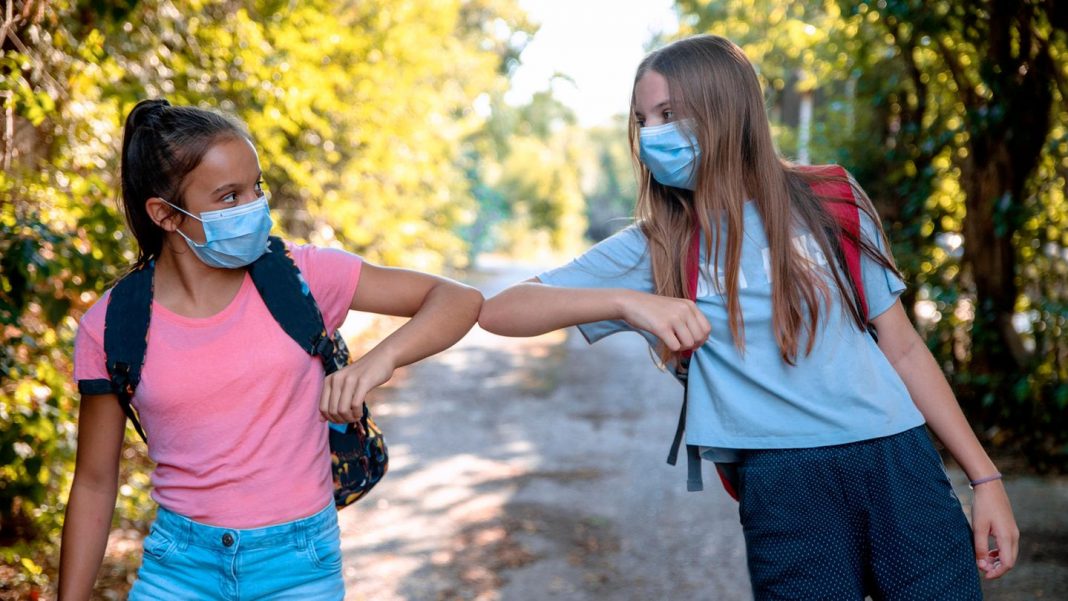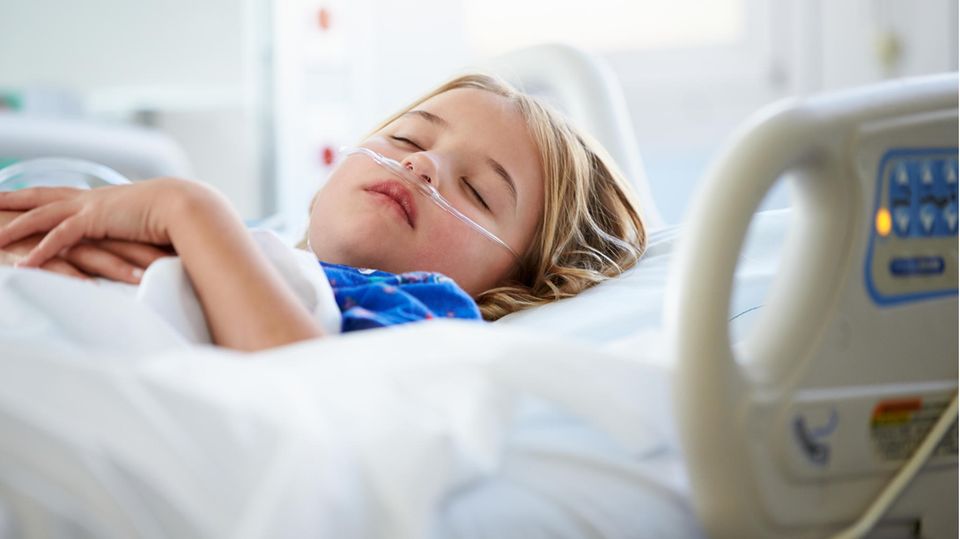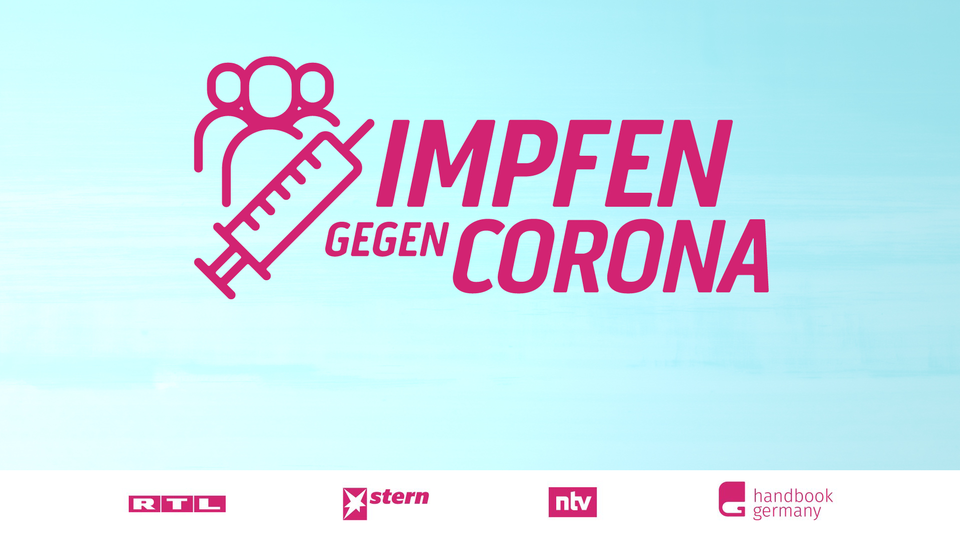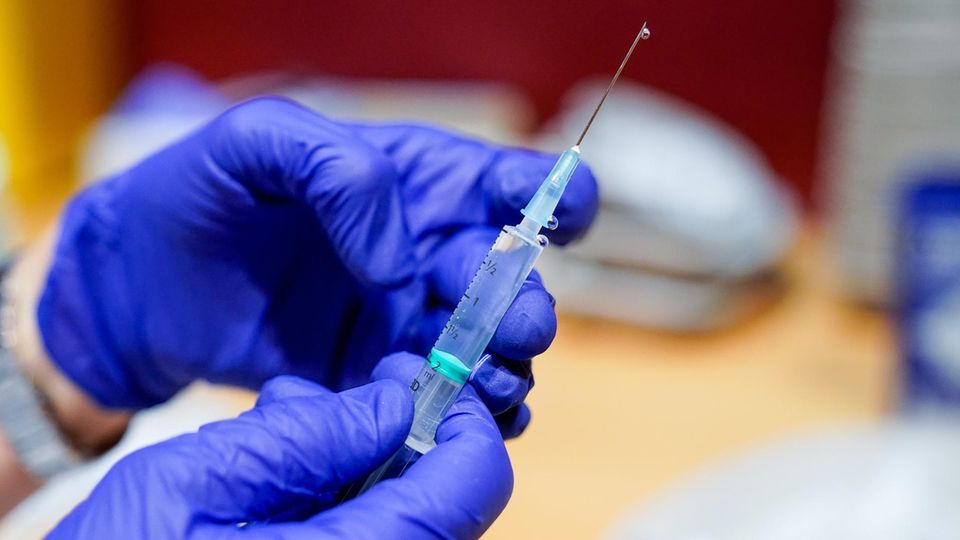Stiko took a long time to come up with a decision and received increasing criticism for it. Now the decision has been made. The Commission has updated its recommendations for children and young people. An overview of the most important questions.
After the health ministers rushed ahead at the beginning of the month, the Permanent Vaccination Commission (Stiko) now recommends the corona vaccination for all children and adolescents from 12 years. The Commission had taken a long time to evaluate the data, which had recently caused a lot of criticism. But now the time has come. According to current knowledge, “the benefits of vaccination outweigh the risk of very rare vaccine side effects,” the panel said on Monday. So far, it is still a draft decision, the official recommendation text is not yet available, changes are possible. What’s next? The most important questions and answers at a glance.
From what age can children be vaccinated against the coronavirus?
The new recommendation applies to all young people between the ages of 12 and 17. Until now, the recommendation in Germany only applied to adolescents with pre-existing conditions such as obesity or chronic lung diseases. Even children who live with very vulnerable people who cannot be vaccinated themselves have already been able to receive the Corona vaccination. According to the Robert Koch Institute, 15.1 percent of 12 – to 17-year-olds have been fully vaccinated and 24.3 percent have received at least one vaccination.
Which vaccine is being vaccinated?
mRNA vaccines are vaccinated. The EU had already approved the vaccine from Biontech/Pfizer at the end of May as the first vaccine for young people aged 12 and over. In the US and Canada, this has been the case for some time. The release of Moderna’s mRNA vaccine followed in July.
What is known about the effectiveness?
According to Biontech / Pfizer, the vaccine protects 100 percent against symptomatic Covid disease in this age group. This was the result of a Phase III study in which more than 2,000 young people aged 12 and over also took part. Among the vaccinated, there had been no proven corona infection, among the placebo group, 16 positive corona cases were counted.
According to the European Medicines Agency (Ema), Moderna’s vaccine is also as effective in 12 to 17 – year-olds as it is in young adults aged 18 and over. The Ema relies on a comprehensive study with more than 3700 children and adolescents. In a separate study with about 2,500 young people between the ages of 12 and 18, the company itself achieved an effectiveness of 100 percent.
What is the vaccination interval?
As in adults, for complete immunization, children need to receive two doses of the vaccine. Up to now, it has been envisaged that these will be vaccinated at intervals of three to six weeks.
What is known about the vaccination reactions in younger people?
Overall, the authors of a study in the “New England Journal of Medicine” evaluate the vaccination as well tolerated for the children, the vaccination reactions were predominantly mild to moderate. Similar to other age groups, the children most often complained of pain at the injection site (79 to 86 percent of children after the first or second dose), fatigue (60 to 66 percent) and headache (55 to 65 percent). About 20 percent got fever after the second vaccination.
The symptoms usually disappeared within a few days. About half of the children (50.8 percent) took a remedy for fever and pain after the second injection. Severe adverse effects such as thrombosis or anaphylactic shock did not occur in connection with vaccination, the scientists report. However, the small total number of 1131 vaccinated only allows limited conclusions about rare side effects.
What is known about serious side effects?
Among other things, cases of inflammation of the heart muscle occurred in the United States. According to Stiko, it was mainly boys and young men who were affected. According to Stiko, these cases should be considered as a side effect of vaccination, but these were usually uncomplicated processes.
Stiko also points out, in relation to recent studies, that heart disease could also occur in Covid-19 diseases. There were no other signs of serious adverse reactions after vaccination with an mRNA vaccine in children and adolescents.
What role does the delta variant play in the decision?
Due to the delta variant of the virus , there is an increased risk of infecting children and adolescents should a fourth wave occur, according to model calculations. In the US, this is already a problem. There are currently more children with Covid-19 in hospitals than ever before. “Our pediatricians, the nurses, the staff are exhausted, and the children are suffering. And it’s absolutely devastating … our children are very badly affected. We have never seen such figures,” Aileen Marty, an infectious disease expert at Florida International University, told CNN last week. (More here)
In addition, it is still uncertain whether and how often Long Covid occurs in this age group. The recommendation is primarily aimed at the” direct protection of vaccinated children and adolescents from Covid-19 and the associated psychosocial sequelae”.
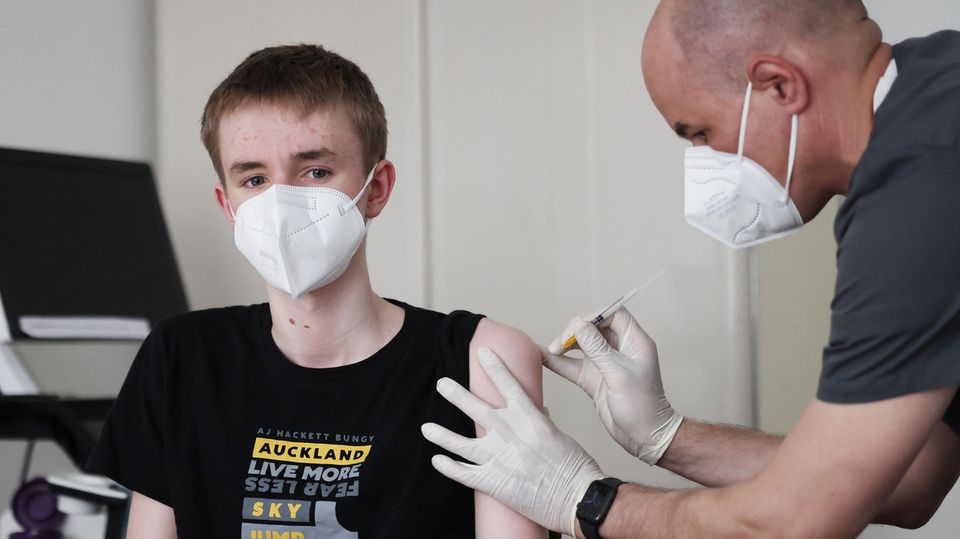
When does the release for children under 12 years come?
A vaccine for children under 12 years of age has not yet been approved. The vaccine company Biontech / Pfizer has been testing such a vaccine for children from six months to under 12 years of age since March. It is expected that a corresponding application for approval will be submitted later this year. At the earliest in early 2022, according to the forecast, it could then also begin to vaccinate this age group against the coronavirus.
Why did the Stiko take so much time?
Until recently, Stiko CEO Thomas Mertens had repeatedly pointed out that the data on the safety of vaccination in adolescents were insufficient. Although the vaccine candidates had been tested in the previous registration studies on up to 60,000 people, only a comparatively small number of children and adolescents. Special studies on this started only this year.
The rethinking of Stiko is now based on new data. The communication states:”On the basis of new monitoring data, in particular from the American vaccination programme with nearly ten million vaccinated children and adolescents, possible risks of vaccination for this age group can now be quantified and assessed more reliably”.
Health expert Karl Lauterbach welcomed the recommendation on Twitter. He commented that Stiko had carefully examined the data and well justified its decision. “We can be grateful to have such an independent body. Science allows change of opinion.”
Source: RKI, Quarks, dpa

